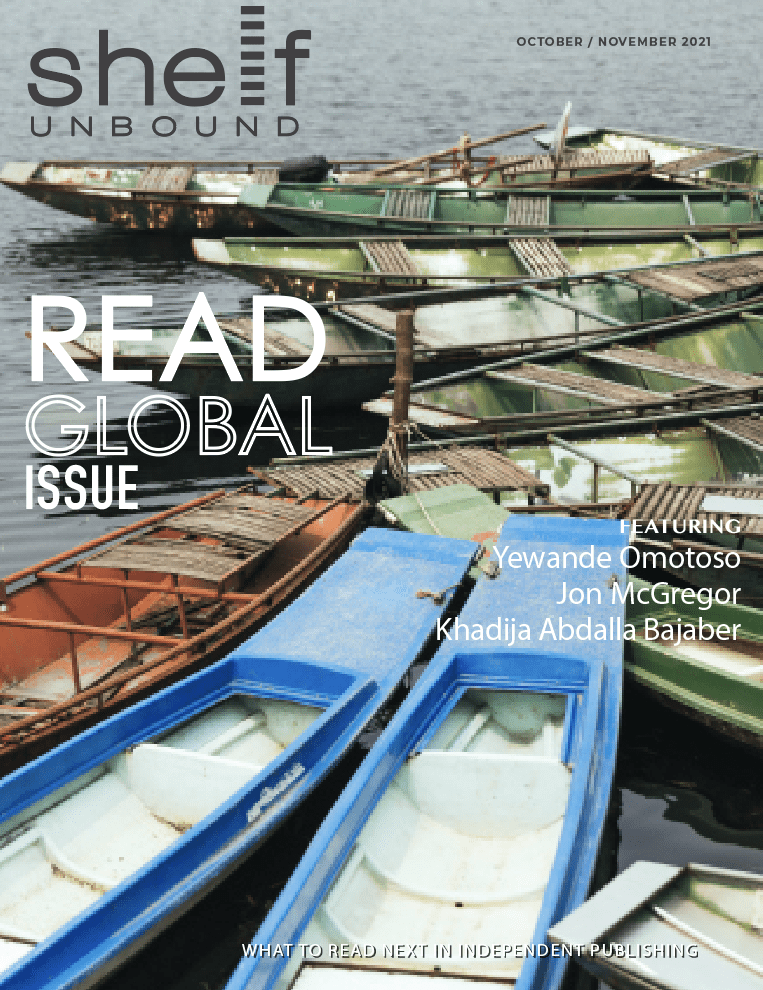By Wyatt Bandt

It’s impossible for me to pinpoint the day I became fascinated by the Far East, most notably Japan. If I could point to a single reason for it, it would have to be my maternal grandparents. Their home was littered with Japanese decorations, vestiges from when they lived on the U.S. military base in Sagamihara. It was something I loved about holidaying there, the komainu on either side of their TV, the pale tapestries hung behind their worn leather recliners, the sliding paper doors that sealed the adult dining table off from the rest of the kids during Thanksgiving. The only thing I didn’t like was how I wasn’t allowed to touch any of it. And, because of what they started, I stumbled upon one of the most significant books I’ve ever read.
In late 2018, I was mulling around the bookstore portion of a conference I was attending when a dust jacket caught my eye. In a sea of gloss and way too many primary colors, this cover’s subtle design stood out. The dust jacket was made of translucent rice paper, featuring the kanji in gold. The book itself was a commentary on Shusaka Endo’s Silence, a Japanese historical novel that is considered a masterpiece by many, something I didn’t learn until later. After paging through it, it seemed to be well-written and it was about Japan. That was all the reason I needed, so I purchased the commentary, ordered Silence online, then promptly forgot both on my shelf for the next six months.
When I finally read Silence, I realized that it was one of the most significant books I’ll probably ever read. It profoundly changed my perspectives of faith, love, and weakness, and years later, I still think about it on a weekly basis. Silence may not be for everyone as it’s deeply theological, with the plot focusing on a Jesuit priest in the hostile environment of 17th century Japan, but even if you’re someone who doesn’t subscribe to any religion, it has a lot to offer. The writing is elegant even after translation, and I was frequently stunned by Endo’s ability to add layers of nuance with a single sentence. Beyond the more obvious religious themes, you can learn about the culture of Edo period Japan, and the books deals with many other themes, such as judgement, grief, belonging, and indigenous perspectives on imported religion.
Because of my experience with Silence, I encourage you to explore literature from other cultures. It sparks a curiosity in you and helps you realize how connected we all are as people, that many of our problems are ones others have shared. For me, my interest in Japan led me to something I’d never trade, and we all have something like that we are interested in, though it may be a little closer to home.
Because of that, I’ve provided a medley of books from diverse genres and origins to get you a little closer to the book that may change your life forever.

The Little Prince by Antoine de Saint-Exupéry
“Once when I was six I saw a magnificent picture in a book about the jungle, called True Stories.”
Despite its childish appearance, The Little Prince is deceptively mature French novella. It reads similarly to one of Aesop’s fables, covering themes of love, loss, and friendship, but it never feels judgmental or cerebral. Many others beside me adore this novel, making it one of the best-selling and most translated books ever published.

Censoring an Iranian Love Story by Shahriar Mandanipour
“In the air of Tehran, the scent of spring blossoms, carbon monoxide, and the perfumes and poisons of the tales of One Thousand and One Nights whisper together.”
Due to Iranian censorship, many of Shahriar’s stories were originally rejected. However, like the author in Censoring an Iranian Love Story, Shahriar continued to write. Known for its comedy, intelligence, and at times ‘avant-garde’ formatting, this story is about two lovers and the people and systems that stand against them.

Wild Swans: Three Daughters of China by Jung Chang
“At the age of fifteen my grandmother became the concubine of a warlord general, the police chief of a tenuous national government of China.”
Jung Chang covers three generations of family history, relating first her grandmother’s and her mother’s stories, then her own. It candidly displays the brutality and struggles that Chinese citizens have endured as well as the heartwarming moments found alongside the hard times.

A Country Under My Skin by Gioconda Belli
“With each shot I fired my body shuddered, the impact reverberating through every last joint, leaving an unbearable ringing in my head, sharp and disturbing.”
A Country Under My Skin is about a Nicaraguan woman who abandoned her well-to-do life to join the Sandinistas, eventually becoming a core figure within it. From her time in the revolution, to her poetry, to her role as a mother, Gioconda writes about all aspects of her life in her raw and poetic style.

That Deadman Dance by Kim Scott
“Once upon a time there was a captain on a wide sea, a rough and windswept sea, and his good barque was pitched and tossed something cruel.”
Written by a descendent of the Aboriginal Noongar people, this is a story about the early contact between European settlers and the Noongar. The story of That Deadman Dance parallels the many others we’ve heard about colonizers and indigenous groups, and it is rich with cultural history and vivid prose.

Continue Reading…
Article originally Published in the October / November 2021 Issue: Read Global.
